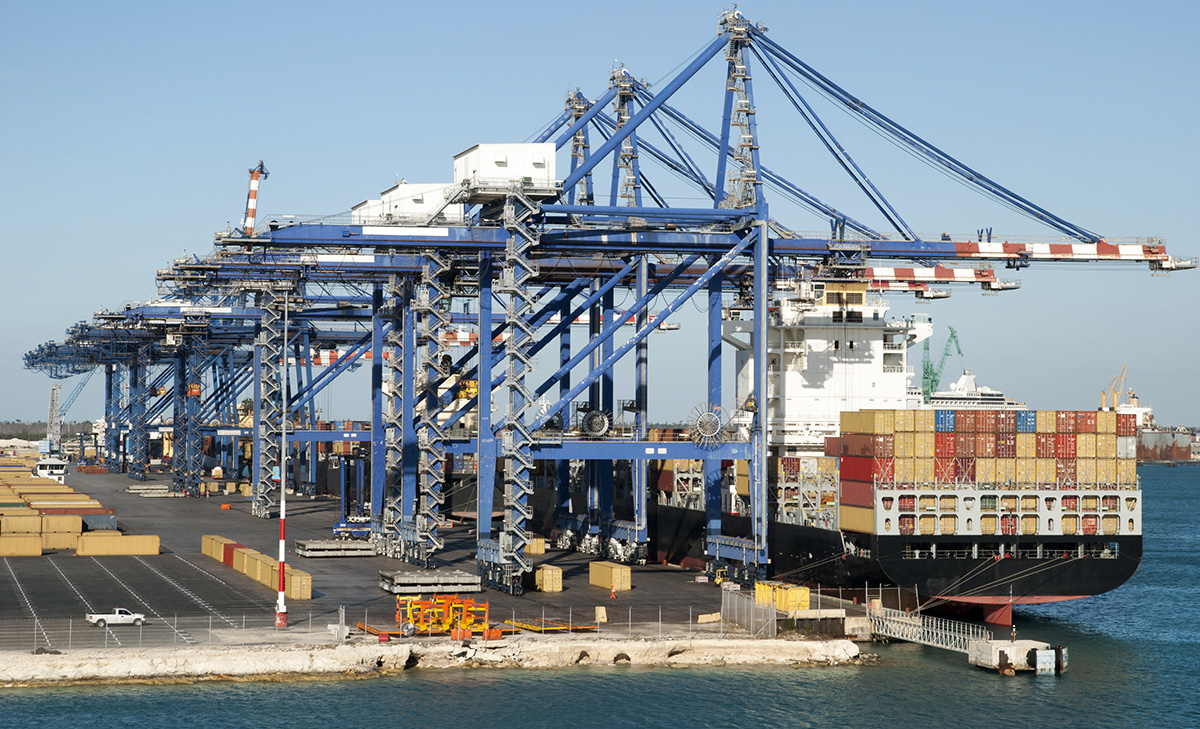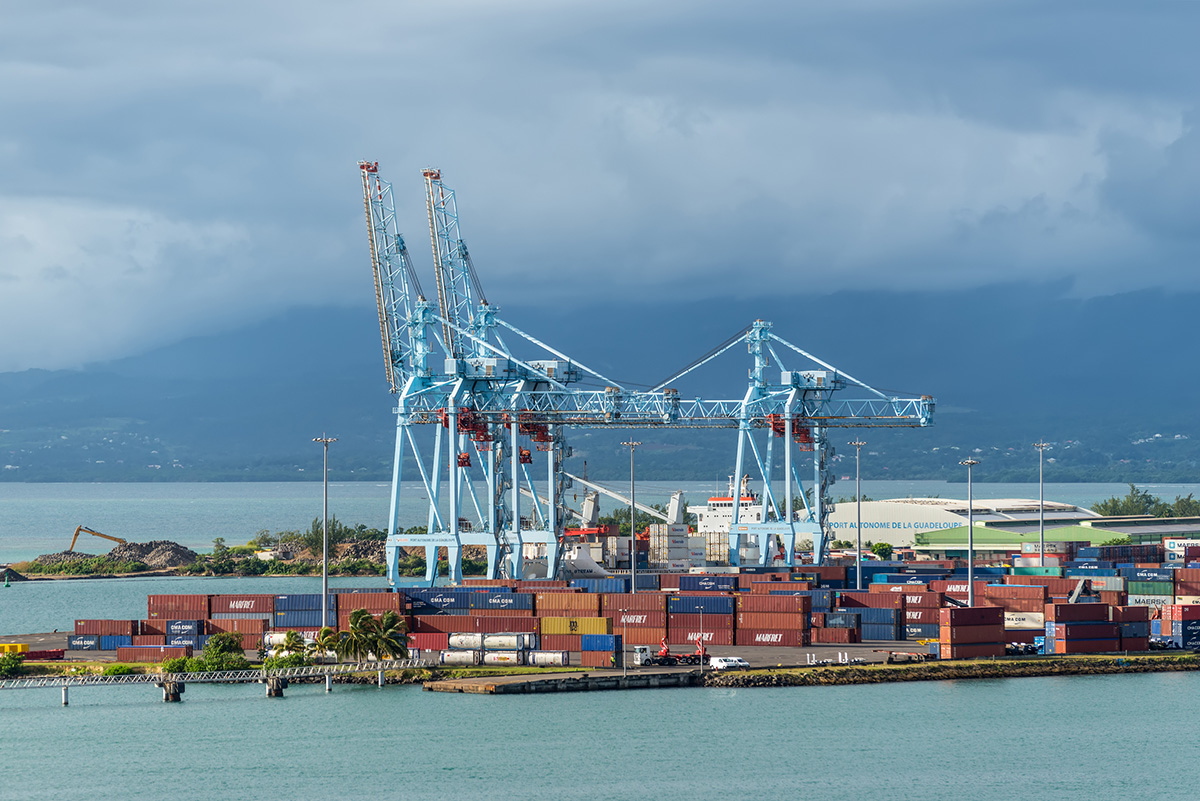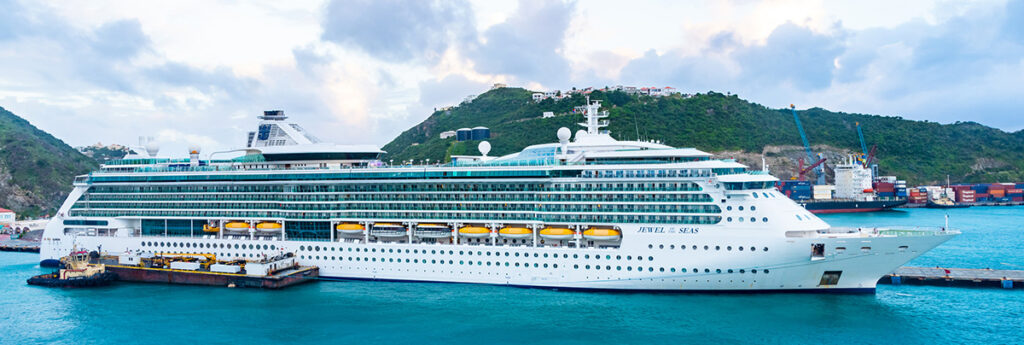By Mike Jarrett
Every port in the Caribbean that is capable of docking ocean-going ships should be a Sustainable Smart Port.
Economic circumstances left in the wake of Covid-19, war in Europe and increased pressure from Earth scientists (and the United Nations Secretary General) for urgent reduction of industrial emissions have collectively created a need for new development models for seaports including those in the Caribbean region.
In this regard, the objectives of the United Nations Conference on Trade and Development to strengthen the capacity of ports in Africa and Small Island Developing States (SIDS) to become Sustainable Smart Ports should be of special interest to Caribbean governments, ports authorities and terminal operators.

The disruption, displacement and challenges to global transportation and seaport operations created by the Covid-19 pandemic demand review and a reassessment of the ways and means by which regional ports functioned. The frailty of the global supply chain and the indispensability of its large and small port systems were exposed.
‘Resilience’ and ‘sustainability’ have become watchwords in a world where the critical importance of seaports to the survival of humanity was dramatically displayed on television and in communications media worldwide. Congested container terminals and immobilised ships at anchor in queues awaiting a berth made the point. Seaports and container terminals have to function effectively, even under adverse circumstances, in order to prevent the ‘container logjam’ that the world experienced in 2021 and into 2022.
As was demonstrated, new strategies must now be designed and employed to ensure that ports, large and small, function as active and ready components in a fragile, interdependent global supply system.

In response to the worldwide disruptions left by Covid-19, the United Nations Conference on Trade and Development (UNCTAD) focused on response measures that promoted sustainability. Projects could include scaling up investment that: promote clean energy, sustainability, green projects and technology-based solutions. It was felt that, altogether, these priorities could unleash the potential of ports to become Sustainable Smart Ports (SSP). And so, by building back better, ports would help to achieve global Climate Change response targets.
What is an SSP?
 UNCTAD defines Sustainable Smart Ports as “… ports that leverage on new data environments, the energy transition of the maritime sector, as well as artificial intelligence and green technology-based solutions to enhance port operational efficiency, promote energy efficiency and clean/renewable energy sustainability, as well as tap into the possibility of producing clean/renewable-energy production and distribution.”
UNCTAD defines Sustainable Smart Ports as “… ports that leverage on new data environments, the energy transition of the maritime sector, as well as artificial intelligence and green technology-based solutions to enhance port operational efficiency, promote energy efficiency and clean/renewable energy sustainability, as well as tap into the possibility of producing clean/renewable-energy production and distribution.”
This definition essentially addresses a port’s capacity to:
- access and leverage new data environments;
- leverage the energy transition of the maritime sector;
- effectively employ artificial intelligence
That is the ‘smart’ part.
The ‘sustainable’ aspect of this definition speaks to the application of green technology-based solutions so as to enhance port operational efficiency. In this regard the idea of SSPs in renewable-energy production/ distribution has been under consideration. And port activities related to development or production of alternative energy for bunkering or distribution have been prioritized.

Until demand for carbon-neutral fuel for the maritime industry gets to a level that stimulates major capital investment in production, the cost for alternative fuels will remain prohibitive. Alternative fuels are not yet commercially viable because they currently cost up to five times as much as conventional fuels1.
And, with governments, multi-lateral organization and civic organizations aggressively advocating regulations to suppress the continuing use of fossil fuels, ports that now generate income from sales, storage or distribution will (if not already) experience a decline in revenues from this source. Innovation for survival has become necessary.
As Luisa Rodriguez2 pointed out, “innovative partnerships” between shipping lines and ports in Europe, Asia, Africa have set objectives to invest in infrastructure, research and development to deploy ‘green ships’ on routes where supply of alternative fuels are available. Green corridors are thereby created.
Necessary
Increasing capacity or acquiring new capability will always present financial challenges. And, for Small Island Developing States with relatively small ports, the challenges to transition to a Sustainable Smart Port are particularly costly. Yet, the transformational benefits from operating a SSP are, ultimately, necessary for national economic progress and social development. It is against this background of need that the UNCTAD initiative for promoting SSPs should be viewed.
In January 2022, UNCTAD, in partnership with the African Development Bank and other UN entities including United Nations Economic Commission for Africa (UNECA), United Nations Environment Programme (UNEP), and the International Maritime Organization (IMO) commenced a three-year project to support and assess the progress of ports making the transition to become a Sustainable Smart Port (SSP). This UNCTAD project is supporting development initiatives in Morocco, Ghana and Mauritius.
With a budget of $600,000 for this Africa project, UNCTAD expects to gain by 2025:
- Enhanced knowledge of relevant stakeholders in the selected countries in Africa about: (i) the potential of national ports to emerge as Sustainable Smart Ports (SSP); and (ii) the cross-sectoral policies and measures that promote the realisation of this potential; and,
- Improved capacity to implement roadmaps/action plans that enable ports to achieve SSP status.
The data and experiences gathered from this project should provide Caribbean port authorities with valuable intelligence to inform the process of developing Sustainable Smart Ports. []
1 Danish Ship Finance Shipping Market Review May 2022
2 UNCTAD Transport and Trade Facilitation Newsletter – Third Quarter 2022
- First published December 1, 2022.






